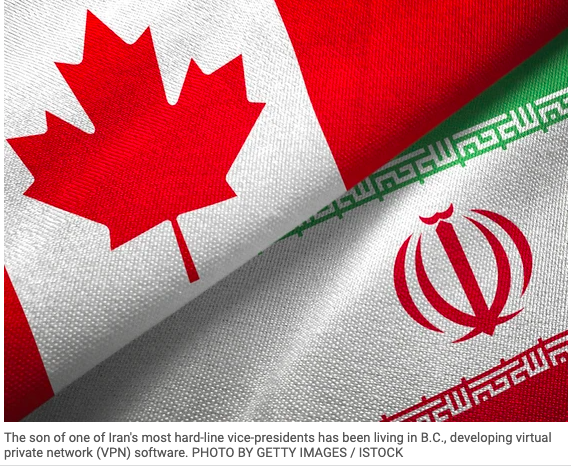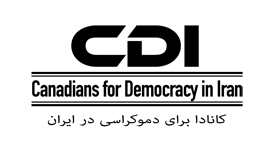One of the more brazen instances of dodgy Khomeinist big shots coming and going from Canada as though they were just regular visitors and as though Iran was a normal country and not a tyrannical terror state involves the former Islamic Revolutionary Guard Corps brigadier Ali Reza Razm Hosseini.

Terry Glavin: Ottawa's lush welcome mat for rich Iranians linked to its brutal regime
While relatives of Iranians killed on Flight PS752 were unable to get visas to fly to Canada for memorial services, an Iranian VP's son is living and working in B.C.
Article content
Four years ago, Hosseini could be seen strolling the streets of Vancouver during a visit with his daughter, a student in the engineering sciences department at Simon Fraser University. Or he was taking his Nowruz holiday time away from his duties as governor of Kerman province. Or he was in Canada on one of several visits for medical treatment for injuries he sustained to his lungs in the Iran-Iraq war of the 1980s. It depends on which fawning Iranian press account you rely on.
In any case, he was here. The senior fixture in the government of Hassan Rouhani and a close confidant of his boyhood friend Qassem Soleimani — the barbaric commander of the IRGC’s Quds Force and overseer of Bashar Assad’s scorched-earth war in Syria who was assassinated in an American drone strike in January 2020 — was here in Canada. At least once.
Article content
Hosseini was free to wander Canada’s streets as though Ottawa and Tehran were on intimate speaking terms. It was a decade ago that Canada shut down Iran’s embassy in Ottawa and withdrew Canadian diplomats from Tehran.
Then there was the case of Morteza Talaei, another IRGC alumnus and the notorious former police chief of Tehran back when Canadian photojournalist Zahra Kazemi was arrested and tortured to death in 2003. Talaei was spotted working out in a gym in Richmond Hill, Ont., in December 2021. Apparently in Canada to visit family, when he was asked how he managed to swing a visa from Ottawa, he said it was nobody’s business. Officials with Immigration, Refugees and Citizenship Canada said more or less the same, citing Canada’s privacy laws.
Article content
Khomeinist officials are becoming increasingly annoyed by these globetrotting Canadian visa-holders. When word gets out about the elites’ profligate and jet-setting lifestyles, the impoverished Iranian people become furious and tend to mount terrifying uprisings.
Talaei said it was nobody’s business
That’s what’s got Supreme Leader Ali Khamenei’s rubber-stamp government of Ebrahim Raisi in a lather this week. It turns out that Betternet, the lucrative virtual private network (VPN) that at least eight million Iranians rely on to learn about the outside world, is a startup formed by the son of a cabinet minister in Raisi’s government who lives here in Canada. The regime’s critics and digital security analysts worry that the application could in fact be used as another weapon in the Iranian state’s arsenal of spying and surveillance.
Article content
The cabinet minister in question is quite the piece of work. The only woman among Iran’s 12 vice-presidents, Ensieh Khazali is a radical proponent of Iran’s profoundly misogynistic statutory regime and her fervour is sometimes too much even for Iran’s state-controlled news media. Earlier this year Khazali shocked the country by hectoring nine-year-old schoolgirls that they were old enough to start thinking seriously about marriage and childbirth. Khazali was taken to task by the government’s own Shargh daily.
The thing is, it’s not at all clear how her son, Betternet founder and software manager Hamid Rezazadeh, managed to establish himself in Canada when so many other Iranians are having such a hard time getting out from under the regime and the hell away from the place. But a look into the company’s origins does tell a story about just how lush Ottawa’s welcome mat can be for Iranians with money and the right connections.
Article content
Over the past five years, the federal Start-Up Visa (SUV) Program has been a wildly popular way for Iranian entrepreneurs to obtain permanent resident status in Canada. Since 2015, Immigration, Refugees and Citizenship Canada has received a total of 3,203 permanent-resident applications from 70 countries via the SUV program. Of those applicants, 615 were Iranians, exceeded only by Vietnamese applicants, at 633. Next in line in the top tier were 534 Chinese applicants, followed by applicants from India (348), Hong Kong (147) and Turkey (110). Ottawa’s SUV policy stipulates that country of origin cannot be taken into account in evaluating applications.
In order to qualify for the SUV program, applicants are required to show that their business ideas are backed by at least $200,000 from one of a variety of federally-designated organizations in Canada that operate as venture capital funds, “angel investor” groups or business “incubators.” In 2019, Ottawa designated a company called 7 Gate Ventures as a qualifying venture-capital company for the SUV program. Betternet shows up in the 7 Gate Ventures’ investment portfolio in May 2018 as a VPN that promises access to blocked websites with a capacity to bypass internet censorship firewalls, encrypt data and guarantee online privacy.
The investment analytics platform Crunchbase identifies 7 Gate Ventures as Betternet’s sole investor as far back as February 2015. The venture capital company’s founding partner is listed as Amir Vohooshi. One of Vohooshi’s side hustles is his service as a member of the board and “mentor” to the e-commerce giant Digikala, the regime-approved “Amazon” of Iran, which is said to be worth at least $500 million. It’s Iran’s third most-visited website.
Article content
Calls to 7 Gate Ventures’ offices went unreturned Tuesday, and Rezazadeh couldn’t be found.
This is all a bit much for the relatives of the people killed on flight PS752, who https://nationalpost.com/news/iranian-vice-presidents-son-allowed-to-live-in-canada-despite-visa-rejection-for-others"}">told the National Post’s Tom Blackwell on Monday that they couldn’t get visas to fly to Canada for memorial services last year. It’s also a bit much for Arsalan Kahnemuyipour, the Iranian-Canadian human rights activist and University of Toronto linguistics professor. “How could the intelligence service not know, how could CSIS (the Canadian Security Intelligence Service) not know that the son of somebody at that level, is right here in Canada?”
National Post
Terry Glavin is an author and a journalist.

